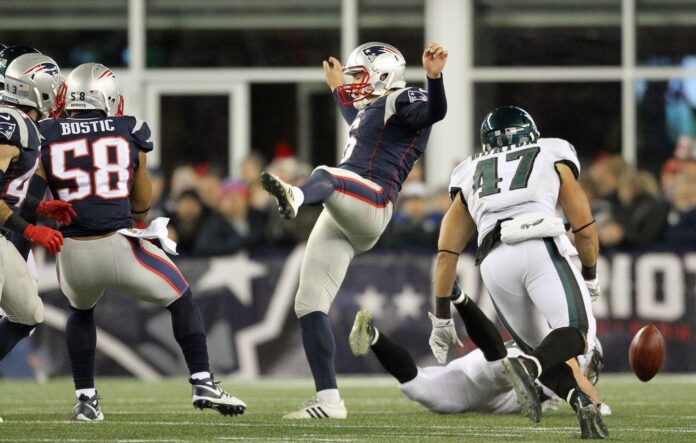Patriots blow three costly plays in a very uncharacteristic fashion
There was a substantial distinction between things that weren’t helpful and direct causation in football.
This was one of many lessons of clarity that players came away with after playing under New England Patriots head coach Bill Belichick.
The NFL regular season was a crazy-long journey with 16 different emotional challenges, making it easy for players to wander off into things that seemed genuine but weren’t directly related to the real problem.
The organization was adamant with its players daily that problem-solving was best done in the nuts and bolts.
In other words, stories were for bedtime, not football.
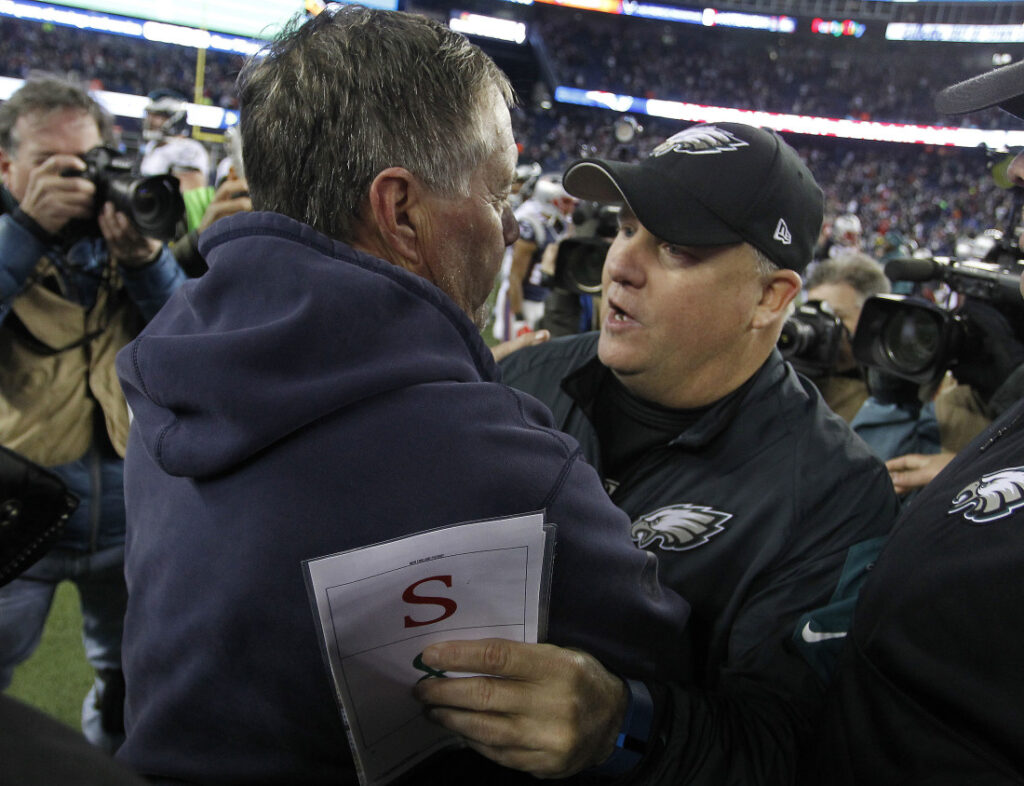
It had been easy to go there, but who wasn’t playing in yesterday’s game didn’t have anything to do with three critical mistakes the Patriots made on Sunday that directly put an insurmountable twenty-one points on the board for the other team.
For all the problems the kicked-up dust would inevitably say this team had, the perspective was night & day without those three garbage plays.
That had been a point Belichick guaranteed to sternly deliver to his team in some form or another that week.
In the rare instance when things like this happened, Belichick typically stood before the team on Monday’s review of the game film and chided the storylines, daring players to find any evidence in the stuff the team messed up.
There had been a substantial internal focus on not letting guys lean on excuses that had nothing to do with the job’s particulars that just got blown.
Some variation of this theme had been heard more than anyone cared to recount, but in straightforward terms, Belichick likely preached a simple message to the players: they couldn’t win if they did ______, so nothing else mattered.
In the job of football, the public areas of blame might have sounded right, but if you couldn’t directly point to them in the film, they weren’t the real problem the team needed to fix to win.
Historically, the win probability for NFL teams that got a punt blocked hovered around 10% for that game. The number shrunk even further when the blocked punt was returned for a touchdown.
When that same team surrendered a punt return touchdown, gave up a pick-six, and had an overall turnover differential of minus-2 for the game?! Good grief, they had a better chance of riding a skateboard to the moon.
Knowing this stone-cold football reality was the part that usually grabbed the Patriots’ attention when trying to fix something. Here’s what they were likely focusing on that day:
1. The [Gulp] Punt Block
As a former special teams player, trust him, these things still curdled whatever food was in his stomach.
When a punt block occurred, it was one of the most potent no-need-to-say-anything “oh, shit” sideline moments in football. Bad news, man. Bad news.
You knew somebody screwed up majorly. You also learned how they must feel when realizing they did it.
He recalled two blocked punts that he was on the field for during his career. The poor bastards looked like they’d seen a ghost on the sideline and stayed pale until nearly the next game.
It was a very basic punt block look that all punt protection members would’ve seen and aced hundreds of times.
As a special teams player, one was coached to know that punt blocks were about the worst possible thing to happen. Worse than a home invasion. Worse than a nuclear attack.
The punt team was usually the most complex unit to get on for a young player because so much was at stake in every punt play. It was the “reliability” unit.
There couldn’t be any protection mistakes, or there’d be game-altering problems.
They were told: Don’t get a punt blocked. Don’t ever get a punt blocked.
That one had been huge in Sunday’s outcome, but the part that frustrated the team the most was that it wasn’t a challenging or confusing play in any way—it was just a mental error.
It had been a mental punt block look that all punt protection members would’ve seen and pierced hundreds of times.
During the game, a quick slide was tweeted out to illustrate the problem, and it still held up after checking the tape the next day. Unless the Patriots had some unusual protection call that wasn’t known, the left guard didn’t block the right guy.
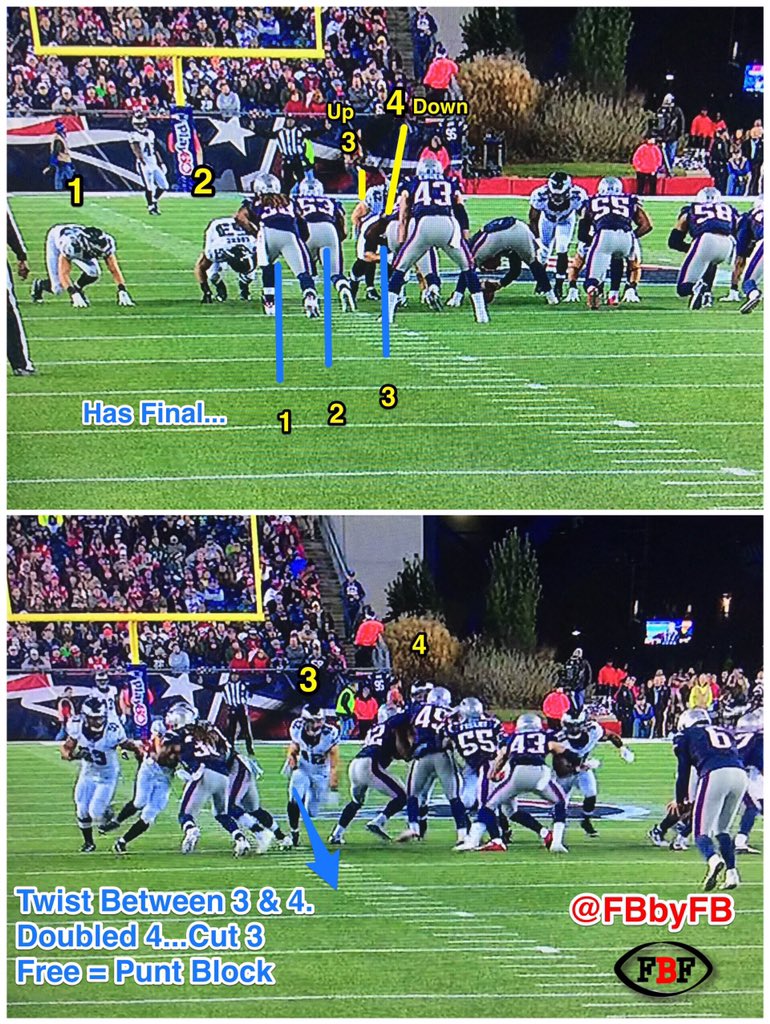
This didn’t fit any narrative of injury problems, coaching decisions, or being ready to play.
Sometimes, hopefully, extremely rarely, somebody just screwed up big time. Everybody made mistakes, but it was a learning situation that you never forgot as a player.
In some football plays, you could never make a mistake. Punt protection was one of them.
This mistake hadn’t led to something else. It didn’t indicate some more significant problem explainable from some more substantial context. It just was what it was—a vast, unfortunate, costly error.
2. Punt Return Touchdown
It was known very well that special teams players were an under-appreciated group that too often didn’t get the attention they deserved, so it pained to highlight a second critical, game-altering play that rested with the ST guys.
Giving up a punt block was one terrible thing. Was it giving up a punt return touchdown soon after having a punt blocked?
That was a crotch kick right after a vasectomy.
Different from the punt block, Philly deserved the credit for this one. One hallmark of excellent punt return blocking was when a returner didn’t have to make any dramatic cuts or break a tackle until well into the return.
Eagles PR Darren Sproles got 38 yards into his return until he did anything special (see below).
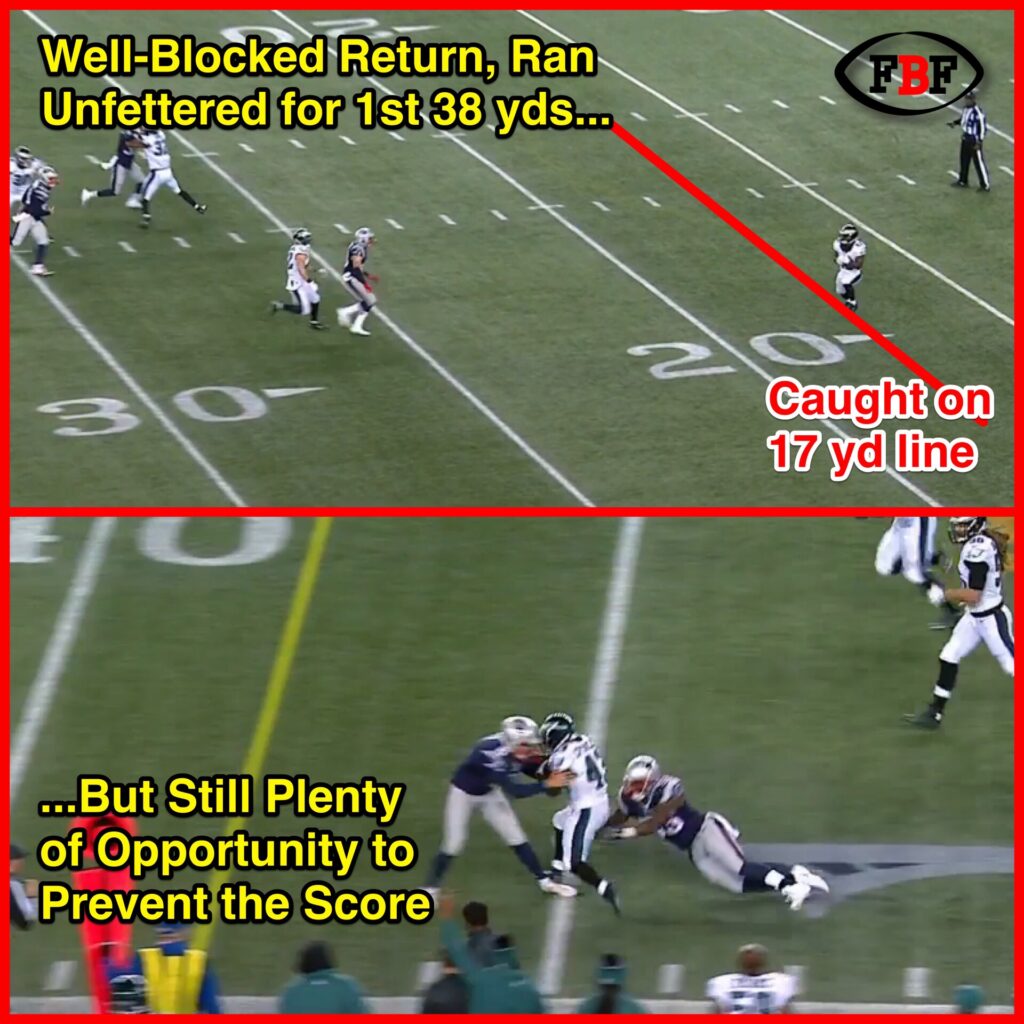
They didn’t have access to the coaching tape of the game until Tuesday, so there wasn’t a great shot of the full coverage and where the crux of the breakdown lay.
What could be told from the broadcast copy was that the return should never have made it past the Patriots’ 40-yard line, with two Pats defenders in position to keep it from being anything more than an excellent return (above, bottom half).
To boil this down to hot-take currency, the 2-on-1 blown tackle was worth twice as many yards in field position as all the consternation over the Nate Ebner drop kick in the first half. And this much more real mistake put points on the board.
This play deserved a big hat-tip to the Eagles’ return unit and Sproles for blowing through what should have been a 40-yard shorter return.
That was two monster special team plays amounting to an actual [not speculative] 14 points on the scoreboard—conceded by a special teams crew that was typically a Patriots strength.
3. 99-Yard Pick-Six
Tom Brady made a critical error deep in Eagles territory by throwing an interception into a double-team, resulting in a 99-yard touchdown the other direction.
They had been working off that ’21 points worth of errors’ number in this column, but this was a ten or 14-point error.
Not only did the Eagles get their touchdown, but the Patriots didn’t get their near-certain points.
Brady did the team thing in post-game and took the blame, identifying “quarterbacking errors” as a massive factor in the game. Tom was the one player on earth who knew the team’s thinking best and understood the real cause & effect of winning.
So, it was admirable that he immediately said as much, but it was also hard to argue the point.
For fans of this team who wanted them to play better, it was far better to hear this [actual] explanation than any other alternative excuse for what happened yesterday.
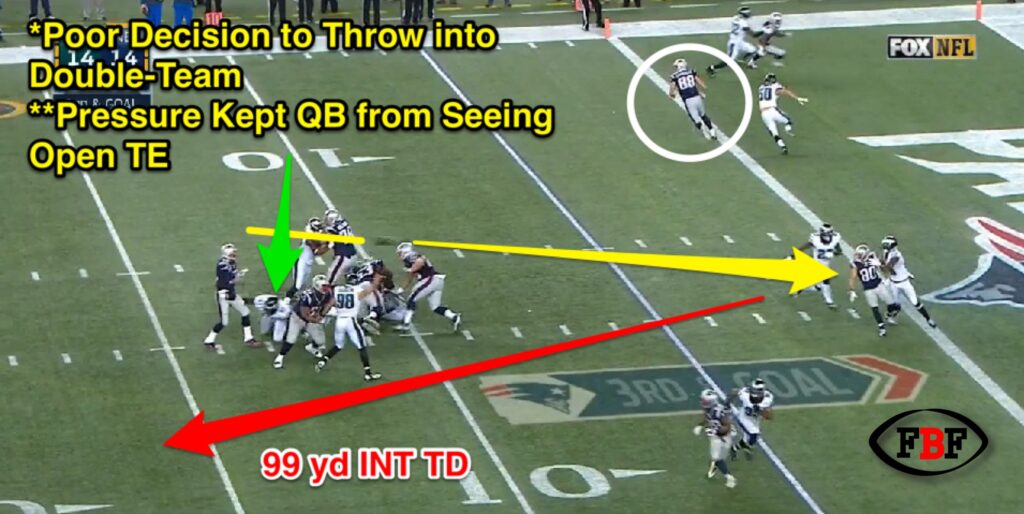
The ball should never have gone to the double—there were other singled options, or throwing the ball into the stands to save the three points and take the lead seemed a more typical Brady-like decision.
It was worth noting the protection at LG wasn’t very good on that play either, and Brady felt the pressure that prevented him from getting back to his other options—specifically open TE Scott Chandler.
That said, the right decision was to throw it away, as he so often smartly did.
The big takeaway was that there was an unprecedented amount of mistakes in Sunday’s shocking loss that didn’t just maybe sort of lead to other problems or missed opportunities.
There were 21 direct points on the board from particular stuff of guys just screwing up.
Did that fact make everything hunky-dory in Patriots Nation? Of course not.
But it meant the pursuit of a resolution to some other thing they were struggling with to a lesser degree wouldn’t have the straight-line effect on better results nearly as much as just not repeating these same easily avoidable mistakes.
Trying to shoehorn a storyline into any of these three basic white personal failures was the kind of stuff losing teams did. 1 Patriot Place was a very logic-driven and results-based place that didn’t suffer excuses with no sensible connection to the result.
The Patriots had significant problems on Sunday—wholly fixable and unrelated to anything other than the nuts & bolts of the mistakes themselves.

